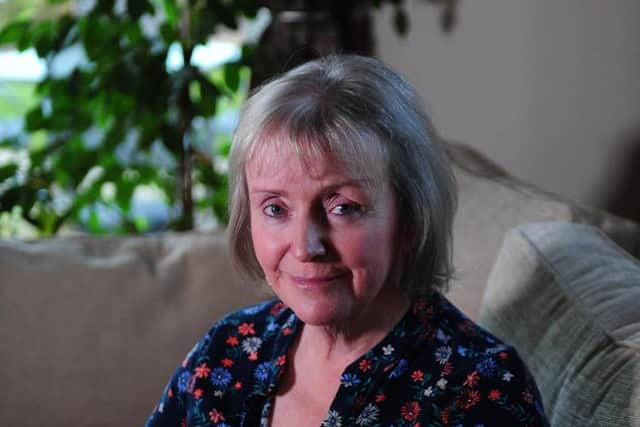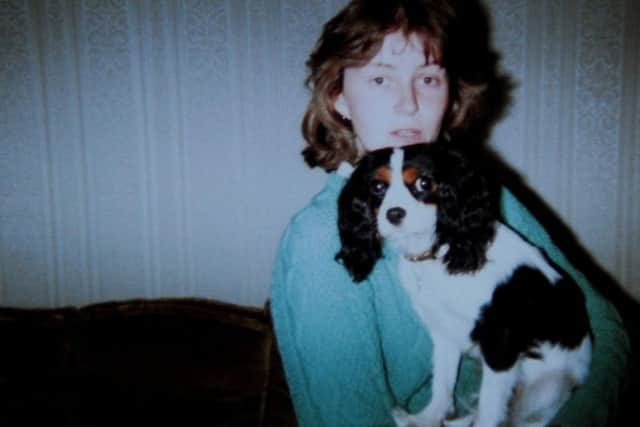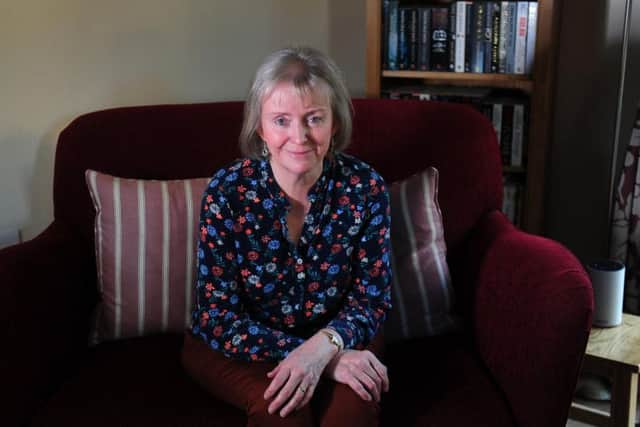Yorkshire mother's 40-year battle with rare condition where her body is under constant attack
She's lived with a rare and incredibly painful auto-immune disease for over 40 years, only recently discovering she wasn't alone in the battle.
There have been times, the former headteacher from Knaresborough admits, when it's been like wading through water just to get through each day.
Advertisement
Hide AdAdvertisement
Hide AdNow finally, having secured a diagnosis and an understanding what lies at its heart, she is beginning to master control.


"When I get a cold or a slight flu, I actually feel better than normal because my body starts attacking the virus, rather than itself," says the 56-year-old mother-of-two.
"There have been times where the only way I've been able to cope in the last 40 years is by pretending it's not happening.
"It's only now that I've started to feel in control of it, rather than it controlling me."


Advertisement
Hide AdAdvertisement
Hide AdMrs Wrigglesworth, now a services manager for the Alzheimer's Society covering much of North Yorkshire, has a condition called Undifferentiated Connective Tissue Disease (UCTD).
It means her immune system, designed to protect her from bacteria or viruses, mistakenly attacks her healthy tissues instead.
The symptoms started with a swollen knee, after a fall at the age of 13. Swelling to the size of a melon, she had been spent months off school as she was unable to walk.
There were years of unexplained rashes, extreme pain and fatigue, itchy, dry skin, stiff joints, swelling, and a shortness of breath.


Advertisement
Hide AdAdvertisement
Hide AdEven in the height of summer, she has to carry gloves, because her hands get so cold. Swallowing could be so painful she couldn't eat with water to wash the food down.
"I felt I had to scrape myself out of bed every morning," she says now. "I would just hit the wall, much earlier than most.
"It's really had a significant impact on my life. There have been times when I've just been too tired to go out."
Mrs Wrigglesworth, first a radiographer, had changed careers as she was struggling with the night working and shifts.
Advertisement
Hide AdAdvertisement
Hide AdShe had re-trained as a teacher, rising rapidly to become headteacher of a primary school in Leeds, before moving into the charity sector and reducing her hours.
Her husband John, sitting beside his wife as she talks, smiles slightly.
"I always say she would be quite frightening if she wasn't unwell," he says. "She's the most capable person I know."
Over the years, there have been countless tests, biopsies and specialists and, as we speak, all the paperwork is laid out on the table in front of them, dating back to 1977.
Advertisement
Hide AdAdvertisement
Hide AdLifting a lengthy copy of her medical history, Mrs Wrigglesworth says she had sat and cried when it arrived, looking through the many different diagnoses varying from lupus to rheumatoid arthritis.
"Nobody can be an expert in everything," she says, referring to the length of time it took to secure a formal diagnosis, over 40 years.
"But there really needs to be better research, so that people can be given specific diagnosis more quickly, without having to go through this."
With a diagnosis, Mrs Wrigglesworth says has been able to better manage her condition. There are social media groups, meaning she can connect with others for the first time.
Advertisement
Hide AdAdvertisement
Hide AdAnd a pool of research, for a condition which is so little known it doesn't even have a dedicated website or support group. Armed with this guidance, approved by her own specialist, she has changed her habits, including testing for food intolerance and discovering she is sensitive to eggs and milk.
"I'm not cured, but I'm so much better than I was. I'm not in pain - it's such a novel experience to me, after so many years.
"I know I still have the condition. There are times when I can feel my body grinding, but I just have more energy, more get up and go.
"There are so many hidden disabilities, and people don't realise how hard it is," she adds. "Even the simple things, like loading the dishwasher, walking the dogs.
Advertisement
Hide AdAdvertisement
Hide Ad"People don't realise the effort it can take just to get up and go into work."
Rare condition
Mrs Wrigglesworth is speaking out today in the hope that there can be a greater recognition for research into rare diseases and conditions such as UCTD.
"There will be people in Yorkshire - there will be people in Knaresborough - who have this condition and don't know," she says.
"They have a right to a diagnosis, a right to research, and a right to their care.
Advertisement
Hide AdAdvertisement
Hide Ad"Having a diagnosis meant I could help myself, in a way," she adds. "It's made a massive difference, knowing about it. Knowing to take Vitamin D, knowing to avoid the sun.
"And knowing that I'm not the only person in the world with this, that I'm not making it up, that it's not all in my head.
"It's not going to happen in my lifetime, but I do hope that there might one day be a better understanding and a cure."
